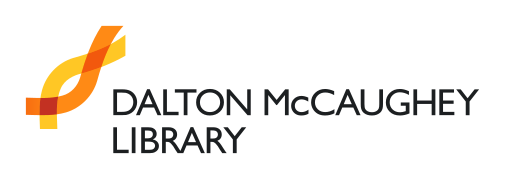Student Orientation
Getting Started at the Dalton McCaughey Library
Dalton McCaughey Library (DML) is an historic, ecumenical collaboration between the Australian Jesuits (Society of Jesus), the Uniting Church in Australia (VicTas), and Trinity College (Anglican) with particular strengths in the broad disciplines of theology and philosophy.
Library Hours
| Monday–Friday | 9am–5pm |
The library is normally open Monday to Friday, 9am–5pm, for reading, writing, and research. Extended evening and Saturday hours are offered from time-to-time and published on the library’s website, Facebook page, and within the library.
Extended Hours—Semester 2 2025
| Saturday, 16 August | 9am–12pm |
| Saturday, 20 September | 9am–12pm |
Additional extended hours may be added.
Writing Retreat
| Thursday, 28 August | 9am–3pm | Guest speaker Julia Thwaites UD Doctoral Candidate |
Library Staffing
The library is staffed by librarians, professionals, and volunteers who can be reached by phone: +61 3 9340 8888. Outside of operating hours, contact staff by email: library@dml.vic.edu.au.
Dalton McCaughey Library Online
When searching the catalogue, you can locate the call numbers for the DML’s print collection (including Course Reserves) and access eBooks and full text journal articles. As of mid-July 2025, the DML has migrated to a new library system which provides for Pilgrim and Trinity students and staff to simultaneously search both the DML catalogue and the UD Library Hub with your University single-sign-on (SSO). We are currently rebuilding the “Guidebook” menu found in the header that will help you get started with your research.
Dalton McCaughey Library On-site
Located at 29 College Crescent Parkville, adjacent to the Sage+Grace café:
- New books and journal issues, as well as reference materials and print theses are located on the main floor of the library. The general print collection is housed on the first and second levels of the library. Lesser-used materials are located in the basement stacks and may be requested at the circulation desk. Retrieval may take up to 30 minutes.
- Arrangement of library books: The DML uses the Union Classification system, also known as “Pettee.” This system’s alpha-numeric notation, found on the spine label of each book in the general collection, arranges books by what the book is about (subject matter) and also serves as an address for the location of the book in the stacks.
- Course Reserves (materials in high demand for particular units) are normally shelved in the stacks by call number with shorter loan periods to ensure fair access.
- Borrowing books: Forty loans are allowed at one time with a loan period of 28 days and two renewals. Students and staff can manage their respective library accounts (including renewals) by signing in to the DML catalogue and clicking on “My Account.”
- Purchase suggestions for your research may be sent to: library@dml.vic.edu.au. Please note that not all requests will be honoured due to budget constraints. For those suggestions that are approved, we cannot guarantee timely receipt of the materials.
- Return DML materials in good condition, at your earliest convenience, to the return chute at the right-hand side of the circulation desk. Alternatively, there is an exterior chute, near the bike racks, for returns when the library is closed.
- A replacement fee is charged for missing or damaged materials—including water/coffee stains, highlighting or pen/pencil markings, etc.
- Note: the library has a bank of lockers near the café that students may use to secure personal belongings when leaving the library for short periods. Please ask for a key at the circulation desk.
Journals
- The DML subscribes to approximately 40 print journal titles. Our current holdings may be found by typing the name of the journal title into the search box on the catalogue homepage.
- Along with other useful databases, the UD Library Hub subscribes to the ATLA Religion Database with ATLASerials Plus which provides full text access to many theological journals.
Library Research
Getting Started
- When you have an upcoming assignment, get to the library well in advance. Try a search on the library catalogue, peruse the collection, and speak to library staff to ensure you are employing the best possible search terms and efficiently accessing the key texts on your topic. If you are floundering, initiate a conversation with your unit professor.
- Library staff provide reference and research support in-person and for students-at-a-distance, through Zoom. Please contact the DML, library@dml.vic.edu.au, to set up an appointment. We are happy to help!
- Member login is necessary to access the DML’s and the UD Library Hub’s online materials. Sign in by selecting “Pilgrim and Trinity Colleges” then apply your SSO credentials.
Reading & Writing
- There is a strong connection between reading and writing. Generally, the more one reads, the better one writes. Being an “active” reader can positively impact your writing process. The University of North Carolina Chapel Hill’s Learning Center offers insightful suggestions on “Reading to Write” well. Dalton McCaughey Library recommends their full range of tips and tools.
- Join our free, one-day writing retreats in the library. A writing retreat is planned for Semester 2 2025 on Thursday, 28 August, 9:00am to 3:00pm. All writers are welcome!
Citation Style
The University of Divinity recommends the style guide The Chicago Manual of Style (18th ed.) when citing sources. The Chicago-Style Citation Quick Guide is a useful, online guide. Make sure to use the notes and bibliography system.
Scanning & Public Printing
The photocopier may be used for scanning and printing. Please comply with Australian Copyright Council’s interpretive guides (also located near the photocopier). Printing issues should be directed to library staff.
